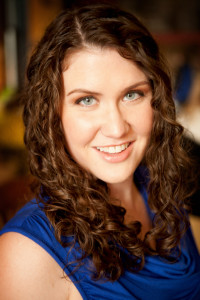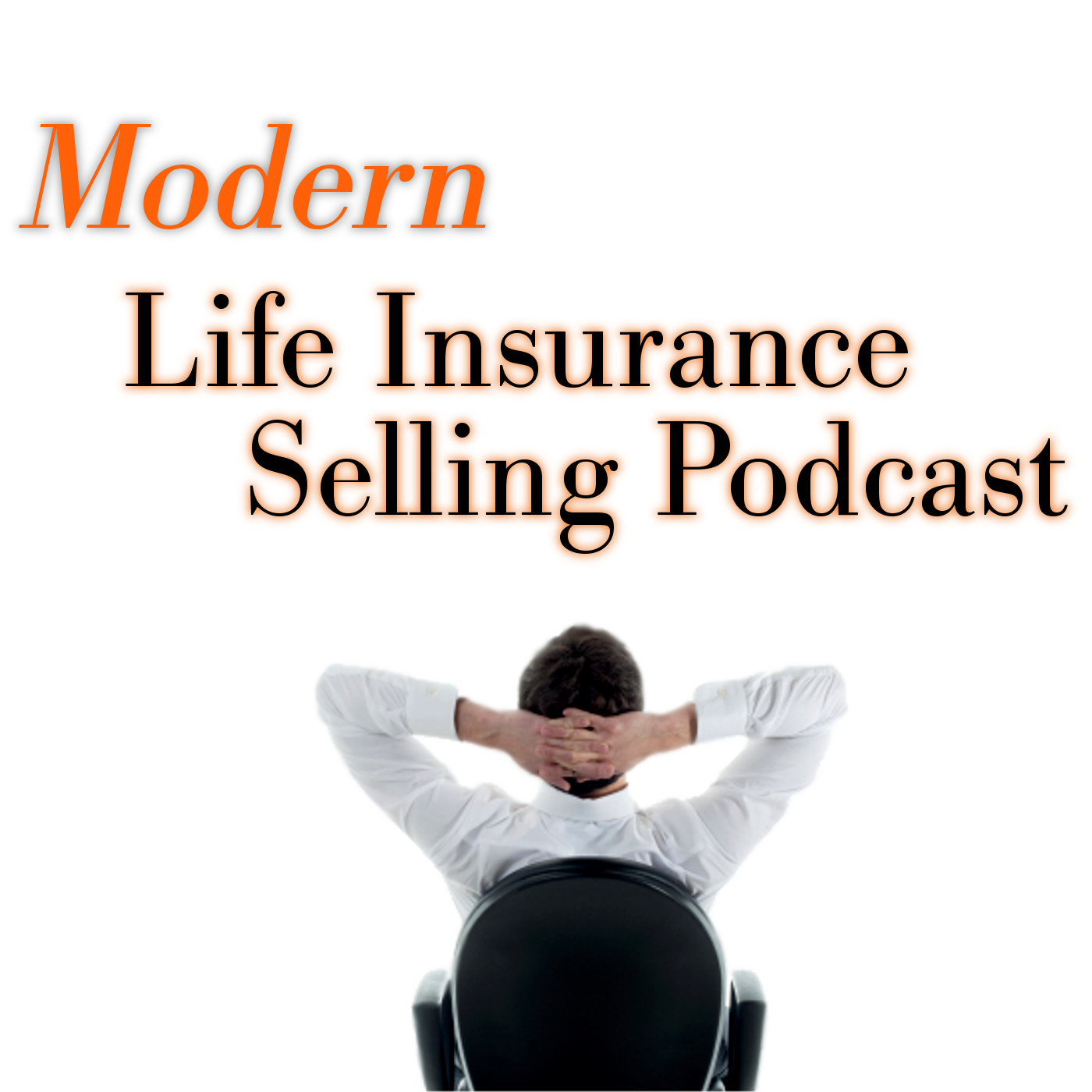Building A Profitable Business Around Gen Y with Sophia Bera
Description

Forget what you’ve heard about targeting Gen Y. Sophia Bera has built a very profitable business around Gen Y and in this episode talks about how she did that.
Sophia is very open and generous with the inside look at her business and how she works with Gen Y. Lots of great “how-to” information for any financial services business.
In this episode learn:
1. Why Gen Y when industry vets tell us there’s no money there?
2. Sophia’s path to build her brand and actionable advice to get started on yours.
3. Why connecting remotely with people is a lot more intimate than face to face sales.
4. Technology used to build her business remotely and connect with Gen Y.
5. What fee-only financial planners look for when referring business to life insurance agents.
Click Here to View the Full Transcript
Sophia: Thank you so much for having me, Jeff. I’m excited to be here.
Jeff: Great. Let’s start here by telling us a background in your business.
Sophia: I’m an actor turned financial planner which is not the typical career path I guess for financial planners. Everybody is like, “How did you get to that?” My undergrad in theater and women’s studies. I did 15 blank shows while I was in college and I decided that I was determined not to be a starving artist. I would sit in a personal finance section of Barnes and Noble and read every finance and business book I can get my hands on and realized I really wanted to buy a house when I graduated from college. I graduated when I was 21, this was back in 2005. You can do the math and figure out how old I am now. Three months later I bought a house and my friends started coming to me with their money questions.
They were saying things like, “Hey, I just got a job but I have no idea how to read my company benefits package,” or, “How did you buy a house,” or, “Can you help me with my student loans. I’m in credit card debt, what should I do?” These were all really great questions and there was really nobody for them to go to to answer those questions and so I learned about this thing called the CFP until I started taking my classes to become a certified financial planner and I wasn’t really sure about it because it was a lot of selling and I really wanted to help people with their money. I really wanted to work with your clients but in my second course I ended up needing my future boss. This guy was working at his father’s financial planning firm and they ended up bringing me in for an interview because they were hiring somebody for their back office and I got my foot on the door, I ended up planning the job which was great.
I ended up getting into the profession in 2007 and then taking my CFP exam in 2009 and becoming a CFP in 2010 and then I worked to a couple traditional financial planning firm before I working for a startup for a year, that was based in New York. Then, two years ago I launched Gen Y Planning and now I’m a virtual financial planner for millennials.
Jeff: A virtual financial planner for millennials, that is awesome. What age group are millennials? Just for context here for everybody listening.
Sophia: Millennials come at this point go until about age 35 but I work with a lot of young gen-Xers as well. People will say things like, “I’m 40, can I work with you or not?” Absolutely we can work together, however I would say that most of my clients are within ten years of my age. I’m 31, most of my clients are mid-20s to early 40s, all of them are actually. I don’t have any clients over I think like 42 and the reason why I really like to focus there is because so many financial planners have been focused on baby boomers and beyond and I really think there’s a bunch of people that are serving that market really well and I wanted to offer something different. When I do have baby boomer clients reach out to me I usually refer them to one of the former firms that I was working at, that might mentor still works at, because I know that he’ll take good care of them and he does great work and that’s something that I’m happy to do.
Jeff: You really stick to the millennial Gen Y age group here. You really don’t go outside. If somebody wants to work with you and they don’t fit that mold, you say no and you refer them out.
Sophia: I do because I’m really good at working with people when they’re going through a bunch of life changes. People in their 20s and 30s, early 40s, people are getting married, having kids, moving, switching jobs. All of those things are major planning opportunities and for me that’s really fun. When people get into their 50s and 60s they really want somebody to do a social security analysis and figure out what’s the difference if I retire at 62 versus 66, and I have chosen not to use financial planning software and those people need somebody to run these detailed projections and figure out what is the difference if you retire at those different ages or if you work part-time and whatnot. I really want to make sure that those clients are getting the best service that they can and having somebody that really meets those needs and that allows me to really focus on what I’m good at.
Jeff: I love that because in the early days in the business, and I’m sure you heard this. I know I’ve heard it. I’m sure a lot of people listening have heard this too. Freshly licensed and getting trained were told by industry veterans that the younger generation, generation Y, millennials can’t be profitable and we shouldn’t target them and here you are.
Sophia: Right.
Jeff: Yeah, and here you are crushing it in that market. How did you make gen Y profitable for your business?
Sophia: Great question. Yeah, and just to touch on what you just mentioned when I would go to financial planning conferences I would say, “I really want to work with young clients.” All the advisors would say, “Why? They don’t have any money.” Right? It was this idea that if you were to target clients in their 20s and 30s they have the time to build up their assets yet so you couldn’t charge them an AUM fee because you weren’t going to make enough money off of them, or because they didn’t have any assets, or maybe they have a negative network or whatnot. For me I didn’t see that as our client’s problem. I saw that as an us problem, like as financial planners, as financial advisors. What I do is I charge, I’m really big on the planning. Some people are really big in the investment. I always say like 80% of what I do has nothing to do with investing.
I have become a CFP and I’m really passionate about the planning and I think there’s a lot of planning that goes into things and that really has nothing to do with the asset level that you have or very little. A lot of times if we’re talking about assets, what are we talking about? The 401(k) plan, right, or the Roth IRA that they just started. I decided to charge an upfront planning fee so I charge an initial planning fee of $1,500 to $2,000 upfront. and then I charge a monthly subscription of 100 to 200 bucks a month but right now most of my new clients are paying 149 a month to 199 a month.
Jeff: For that monthly fee, did they just kind of get access to you as their life and changes continue?
Sophia: Yeah, that’s a great question. I do an upfront financial plan so we have two meetings upfront because I really want to dig into the financial planning. Then going forward, we do a meeting every six months and these are I should say virtual meetings, so Skype meetings or Google Hangouts. They may have unlimited e-mail support with me so we continue to address throughout the year. Because what I saw with so many of my traditional firms, clients would only come in once a year and they would really reach out to their planner because they didn’t want to bother them and that all of a sudden there was a ton of things, you know, there’s a ton of fires to put out. Right?
Jeff: Yeah.
Sophia: I really encourage my clients to reach out to me throughout the year and a lot of the planning we’re doing is putting them into contact with the right life insurance agent, the right estate planning attorney, the right CPA. One of the things they love is they get access to my network. They don’t have to stay up late yelping like a estate planning attorney is California. I can just connect them with your sister apparently. Now you’ve learned that there’s a estate planning attorney in California which kicks ass.
Jeff: Yes. For those listening right now, my sister is a estate planning attorney. Does it over the internet just like Sophia. All right. That’s my sister.
Sophia: Yeah. Those things I think are really valuable to my clients because a lot of my clients are busy young professionals. There’s a lot going on. They have really intense jobs or they’re busy with their families or they’re travelling. There’s a lot going on and so I want to be on their team. The reason that I feel like I’ve been able to build a profitable business off of this and not have a huge focus on AUM or Assets Under Management is because I charge a monthly subscription. For example, I have quite a few clients t





